Episodes

Tuesday Jul 02, 2019
"Friendship between Women: Jane and Elizabeth Bennet" by Dr. Tiffany Schubert
Tuesday Jul 02, 2019
Tuesday Jul 02, 2019
“‘My dear Jane,’ exclaimed Elizabeth, ‘you are too good. Your sweetness and disinterestedness are really angelic; I do not know what to say to you. I feel as if I had never done you justice, or loved you as you deserve.’”
“Miss Bennet eagerly disclaimed all extraordinary merit, and threw back the praise on her sister’s warm affection.”
One of the exemplary friendships we studied at this year’s Wyoming School of Catholic Thought was the friendship between Elizabeth Bennet and her sister Jane in Jane Austen’s Pride and Prejudice.
What characterized this friendship between women? Why is their relationship so appealing? And what can we learn from it to inform our own friendships.
Wyoming Catholic College Teaching Fellow Dr. Tiffany Schubert has been a Jane Austen fan and scholar for many years. Here is her presentation delivered this past June 10.
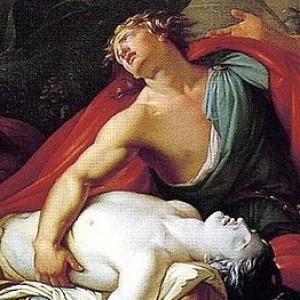
Tuesday Jun 25, 2019
Friendship Between Men in The Iliad and in Moby Dick by Dr. Glenn Arbery
Tuesday Jun 25, 2019
Tuesday Jun 25, 2019
When we came up with the theme for this year’s Wyoming School of Catholic Thought—“No Greater Gift: Friendship from The Iliad to Facebook”—we knew that we wanted Wyoming Catholic College president Dr. Glenn Arbery to discuss the friendship between Achilleus and Patrokolos in Homer’s epic.
What no one expected was that Dr. Arbery would pair the friendship between Achilleus and Patrokolos with the friendship Herman Melville described in Moby Dick, the strange friendship between Ishmael and Queequeg.
Here are Dr. Arbery’s comments.
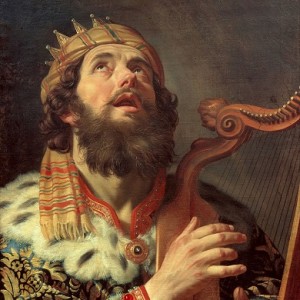
Tuesday Jun 18, 2019
Tuesday Jun 18, 2019
Jonathan was Crown Prince of Israel, the man next in line to be king. David was, however, the man destined to be king instead--and that by God's sovereign choice. King Saul knew that God had chosen David and Jonathan knew as well. Yet rather than trying to kill David, "Jonathan loved him as his own soul." The two were the dearest of friends.
This lecture by Dr. Jim Tonkowich about the friendship between Jonathan and David opened the 2019 Wyoming School of Catholic Thought on June 9. The school's theme was: "No Greater Gift: Friendship from The Iliad to Facebook."
This podcast is the first in a series of podcasts this summer featuring lectures from the Wyoming School.
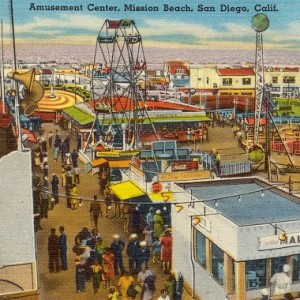
Tuesday Jun 11, 2019
Vacation, Leisure, and Philosophy with Dr. Michael Bolin
Tuesday Jun 11, 2019
Tuesday Jun 11, 2019
Memorial Day has come and gone and with school terms ending, it’s time for vacation. Ah, to get away and… and what? Run from cathedral to museum to monument to scenic vista? Deal with airports, TSA, rental cars, and driving? Work on your golf game? Rise up early to fish? Sit in the beach? Hike in the mountains? Read? Do nothing? Try hard to avoid the all too common lament that I’ve returned from vacation only to find I need a vacation?
What’s the point of vacations anyway? Is taking a vacation the same as leisure? If not, what is leisure?
Philosophers take vacations the same as the rest of us and Wyoming Catholic College Associate Professor of Philosophy, Dr. Michael Bolin just returned from a family vacation. Dr. Bolin is our guest on this edition of The After Dinner Scholar.
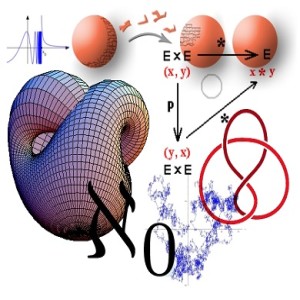
Tuesday Jun 04, 2019
"Is It Okay to Hate Math?" with Dr. Scott Olsson
Tuesday Jun 04, 2019
Tuesday Jun 04, 2019
The late actor Sir Alec Guinness once commented, “All creative people hate mathematics. It is the most uncreative subject you can study.”
By contrast, the German mathematician, Hermann Weyl asserted just the opposite, “Besides language and music, mathematics is one of the primary manifestations of the free creative power of the human mind.”
So which is it? Is mathematics “the most uncreative subject you can study” or “one of the primary manifestations of the creative power of the human mind”?
Wyoming Catholic College professor, mathematician Dr. Scott Olsson—well, he is after all a mathematician so you can guess what he might think. The question is, if you’re a skeptic who has never particularly liked math, can he convince you—the way he has convinced many students over the years.
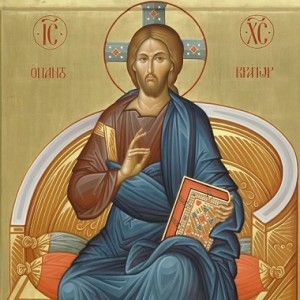
Tuesday May 28, 2019
Eastern Church, Western Church with Fr. David Anderson
Tuesday May 28, 2019
Tuesday May 28, 2019
Most Catholics know only the Roman or Latin Novus Ordo rite of the Eucharist. That’s not a surprise since it’s that rite that is celebrated almost exclusively in most of our churches. But the Catholic Church has not one, not two, but twenty-three different rites falling into six basic families: Latin, Alexandrian, Antiochian, Armenian, Chaldean and Constantinopolitan better known as Byzantine.
Our Wyoming Catholic College community is no stranger to the Byzantine rite. A nearby priest has celebrated that rite, the Divine Liturgy of St. John Chrysostom, regularly. Beginning this fall, however, we will all become even more familiar with the Byzantine liturgy as the college welcomes Fr. David Anderson as a second college chaplain. Fr. Anderson is our guest this week on The After Dinner Scholar.
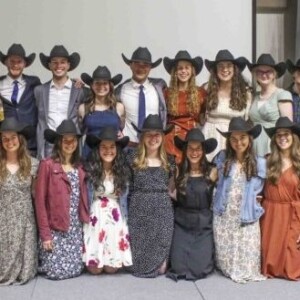
Tuesday May 21, 2019
"Yet": Wyoming Catholic College from Vision to Reality with Bishop David Ricken
Tuesday May 21, 2019
Tuesday May 21, 2019
In 2003 while speaking to a group of lay leaders, Bishop David L. Ricken then the bishop in Wyoming expressed his desire to promote Catholic education for all ages. The might, he mused, mean academic retreats and seminars since “we don’t have a Catholic college in Wyoming yet.” The crowd immediately broke into thunderous applause. In the midst of the clapping, Bishop Ricken turned to Fr. Bob Cook and asked, “What did I say?” Fr. Cook replied, “You said, ‘Yet.’”
On Saturday, May 11, the Wyoming Catholic College Class of 2019 graduated. Bishop Ricken returned to Lander to celebrate the Baccalaureate Mass and to speak at commencement. He was also kind enough to reflect on the founding and growth of the college for The After Dinner Scholar.
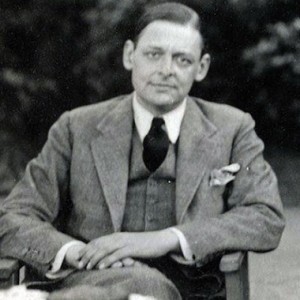
Tuesday May 14, 2019
T. S. Eliot and Life Beyond College with Dr. Glenn Arbery
Tuesday May 14, 2019
Tuesday May 14, 2019
In Wyoming Catholic College's humanities track, the last author our seniors read before graduation is poet T. S. Eliot.
While Geoffrey Chaucer in The Canterbury Tales extolled the loveliness of April when spring fills the earth with beauty and with great joy “people long to go on pilgrimages,” T. S. Eliot called April in our modern, secular age, “the cruelest month.” In his poem "The Waste Land," Eliot described the crowds of commuters with their backs turned to the glad pilgrim road to Canterbury as they slog into London for another work day.
Dr. Glenn Arbery, in addition to being our college president, has been teaching senior humanities. He is our guest this week on The After Dinner Scholar.
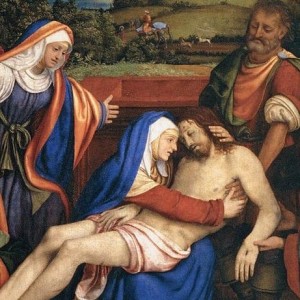
Tuesday May 07, 2019
Questions of Life and Death with Dr. Kent Lasnoski
Tuesday May 07, 2019
Tuesday May 07, 2019
In the old cowboy movie, "The Man Who Shot Liberty Valance," once Valance is on the ground with a bullet in him, someone calls for the doctor. The doctor turns the body face up with his boot, looks at the corpse, and says, "Dead." One hundred or more years ago, life and death were relatively simple, but they're not any more.
While there are good reasons to rejoice in modern medical technique and technology, questions of life and death have grow in number and complexity.
Dr. Kent Lasnoski ended his moral theology course with Wyoming Catholic College seniors by moving from the philosophical and the theological to the conundrums force on us by medical and biotechnical advancements. Dr. Lasnoski is our guest on this week's After Dinner Scholar.
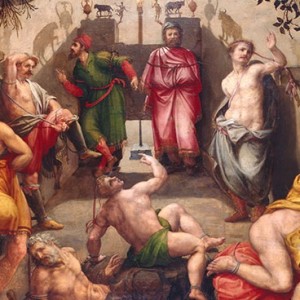
Tuesday Apr 30, 2019
Tuesday Apr 30, 2019
“Make an image of our nature in its education and want of education, likening it to a condition of the following kind” said Socrates in Plato’s dialogue The Republic. “See human beings as though they were in an underground cave-like dwelling with its entrance, a long one, open to the light across the whole width of the cave. They are in it from childhood with their legs and necks in bonds so that they are fixed, seeing only in front of them, unable because of the bond to turn their heads all the way around. Their light is from a fire burning far above and behind them. Between the fire and the prisoners there is a road above, along which see a wall, built like the partitions puppet-handlers set in front of the human beings and over which they show the puppets.”
The quote is the opening of Plato’s famous analogy of the cave. It’s an image of alienation and of exile from ourselves, from truth, from reality, and ultimately from God.
The analogy of the cave also serves as an introduction to all of Plato’s thought. And so our freshmen read it as the final work and capstone of their first year of humanities. Dr. Pavlos Papadopoulos, an expert on The Republic has been their teacher and is our guest on this edition of The After Dinner Scholar.

